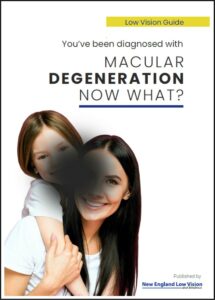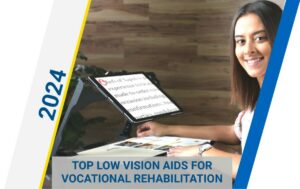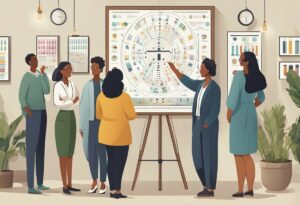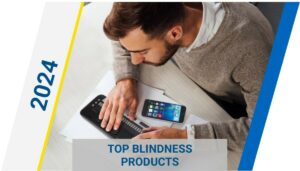Diagnosed with Macular Degeneration… Now What (8 of 12) – CLVRT


Go to this link to order your printed copy of our Low Vision Guide – https://nelowvision.com/product/macular-degeneration-now-what/
So, you have been diagnosed with Macular Degeneration, now what? Many, when being told they have Macular Degeneration, inaccurately hear, “I’m going blind”, and that can feel like your whole world is collapsing.
It is extremely rare to go completely blind from Macular Degeneration, whether you have either the wet or dry type. If someone tells you that nothing more can be done, that can be very depressing and is often not completely correct. What matters is a better understanding of how to navigate the landscape of the professionals who can assist you with adapting to a world of vision loss.
By the way…. congratulations, you have now become a carpenter! Yes, a carpenter…meaning you now need to assemble a new toolbox of 12-24 new ‘vision-loss’ tools to help you with seeing both near, intermediary and distance objects.
In this 12-part Macular Degeneration Low Vision Guide, I have outlined ideas for you or a loved one to consider when diagnosed Macular Degeneration. It is important to note that not all these action steps are required, but they should be given strong consideration.
#8: Certified Low Vision Rehabilitation Therapist (CVRT) – Contact a Rehab Therapist
Make sure you ask state services regarding a Certified Low Vision Rehabilitation Therapist. Often, the services provided by a CVRT are funded by the residents of the state through taxes. These certified professionals are extremely helpful with all types of support services in the home, and they have a network of options for wider areas of support, including orientation and mobility, and counseling. CVRTs help people to achieve their maximum life goals for education, employment, personal safety and independence.
CVRTs work in areas that enhance vocational opportunities, independent living, and the educational development of persons with vision loss, and may include working in center-based or itinerant settings.
CVRTs engage in a comprehensive approach to vision rehabilitation addressing visual, physical, cognitive, psycho-social, safety and emotional concerns through training and through the integration of existing and emerging technology and targeted adjustment counseling.
CVRTs are committed to excellence in serving individuals who are blind or have low vision to facilitate dignity, independence, and respect with successful outcomes for enhancement of quality of life and/or engaging in substantial gainful employment.
<Click here to read about step #7: Teacher of the Visually Impaired (TVI’s)>
<Click here to read about step #9: Certified Orientation and Mobility Specialist (COMS)>
<Click here to order your printed copy of this 12-part Resource Book>
<Click here to download a PDF of the entire report.>
Scott V. Krug is the President of New England Low Vision and Blindness, a company located in New England, and specializes in bringing hope to people who are low vision or blind through technology, training, and care. Scott has been working in the field of technology and optics for people who are low vision or blind since 1992. Website: NELowVision.com.




